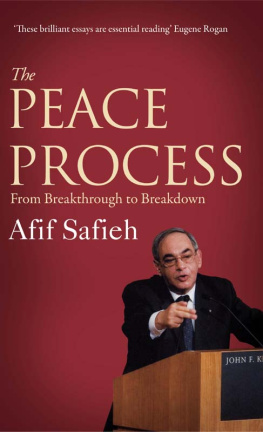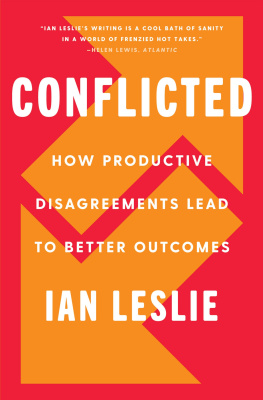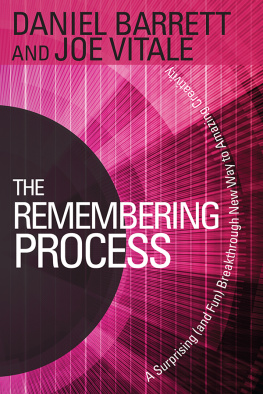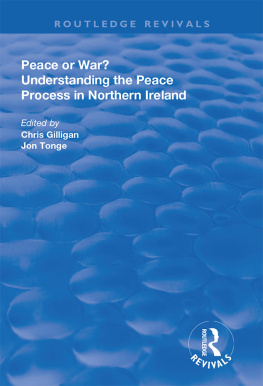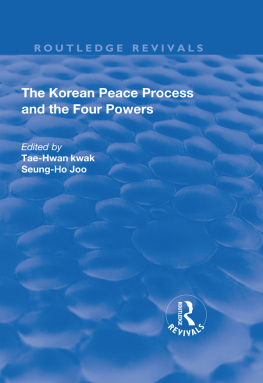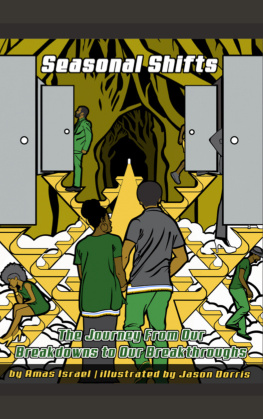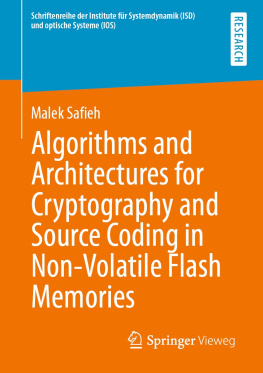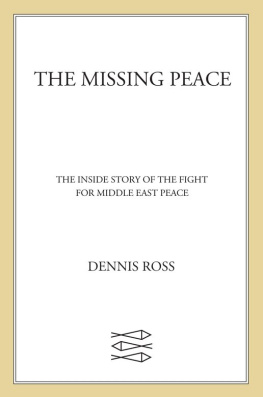eISBN 978-0-86356-494-9
First published by Saqi Books 2010
This eBook edition published in 2011
Copyright Afif Safieh 2010, 2011
All rights reserved. No part of this book may be reproduced or transmitted in any form or by any means, electronic or mechanical, including photocopying, recording or by any information storage and retrieval system, without permission in writing from the publisher.
This book is sold subject to the condition that it shall not, by way of trade or otherwise, be lent, re-sold, hired out, or otherwise circulated without the publishers prior consent in any form of binding or cover other than that in which it is published and without a similar condition including this condition being imposed on the subsequent purchaser.
A full CIP record for this book is available from the British Library.
A full CIP record for this book is available from the Library of Congress.
SAQI
26 Westbourne Grove, London W2 5RH
www.saqibooks.com
To my daughters, Diana and Randa
Introduction
As a diplomat, I have had the rare opportunity, if not the unique privilege, of being the Head of Mission in London, Washington and Moscow, this in addition to the Netherlands and The Holy See. My personal itinerary within the Palestinian National Movement will be the subject of my next book, Anatomy of a Mission.
Here I am presenting the reader with a selection of lectures, speeches, articles and interviews ranging from 1981 to my farewell speech in London in 2005. Most were unwritten, taped and transcribed later. There are lectures at Harvard, MIT, Oxford, the Royal United Services Institute for Defence Studies (RUSI) and the Royal Institute for International Affairs (Chatham House). They constitute a Palestinian perspective on the unfolding reality as well as trace the evolution of Palestinian political thinking.
I have included two documents of special value to me. In April 1991, just after the Gulf War, I was invited for a hearing by the Select Committee for Foreign Affairs in the House of Commons. Palestinian diplomats rarely, if ever, got that type of invitation. The hearing gives a flavour of the era and shows the importance and the difficulties of Palestinian diplomacy in the quest for independence and sovereignty.
In 1987, while a visiting scholar at Harvard University, I interviewed Gene Sharp, an expert on non-violent struggles. That interview was published in the autumn 1987 edition of Palestine Studies, and was translated into Arabic and distributed in the Occupied Territories when the first intifada erupted in December that same year.
The Palestinian people are not offered the luxury of choice between resistance and non-resistance. The choice is between the different modalities of expression of our rejection of the prevailing unacceptable status quo. Reproducing this long interview is, I hope, a modest contribution towards the formulation of a concerted and cohesive approach in the phase to come.
What has happened since 2005 is not addressed in this book. Today it is almost nineteen years since the Madrid/Washington Peace Conference, and almost seventeen years since the Oslo breakthrough. Instead of a durable peace, it is the process that became permanent a succession of spectacular non-events.
How can one summarise the situation?
1. The Nakba was not a frozen moment in History that happened sometime in 19489: the Nakba remains, alas, an ongoing process;
2. The aim of successive Israeli governments has been constant: how to acquire as much of Palestinian geography as possible with as little of Palestinian demography as possible;
3. During the years of theoretical peace-making, what we witnessed was not Israeli withdrawal but rather the expansion of the Israeli occupation through the elastic growth of the illegal settlements;
4. Today, with ceasefires observed in both the West Bank and the Gaza Strip at least from the Palestinian side it is obvious that it is territory and not terrorism which is the obstacle to peace;
5. With the Arab Peace Initiative on the table since 2002, the deadlock is surely not due to an Arab rejection of Israeli existence but due to an Israeli rejection of Arab acceptance;
6. Unfortunately, the Quartet has turned out to be a one-tte operation. Because of its self-inflicted impotence when dealing with Israel, the USA seems to have the political weight of a Luxembourg, or even worse, Lichtenstein. In their confrontation of wills, President Obama has lost the first round with Israeli Prime Minister Netanyahu. Will there be a second round? Will there be a second Obama mandate? Too early to say. Yet knowing the flaws and the reasons of failure of the peace process, I deeply believe that, if ever we are to achieve peace, what is really needed is an elegantly imposed solution that is mutually unacceptable. The concept of mutual unacceptability carries more potential than the eternal and elusive search for mutual acceptability by two unequal negotiating partners left to themselves to sort it out. Bearing in mind the psychology of belligerency, the fact that the other side does not like the proposal on offer either makes it ... less unattractive.
In international relations, in matters of war and peace, the international will should prevail on a national whim.
I wish to express my indebtedness to my wife Christl a Palestinian by choice for shouldering, for over thirty years, many of the responsibilities I have had to cope with. I am deeply grateful to my daughter Diana for her invaluable assistance in preparing the material for this book. It was a joy to work with her. It was also a privilege to work with Saqi, most notably with Lynn Gaspard and her team, who have shown great competence coupled with profound decency.
Afif Safieh
London, March 2010

